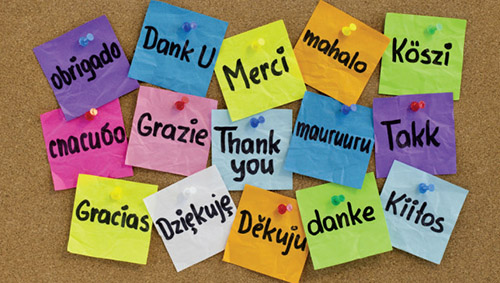
Many store owners post a dollar bill on the wall behind the cash register to remember their first dollar of profit. We have a related concept in this parsha, where we take the first fruit from that year’s crop and bring it to the Beis Hamikdash. There, we recite a special thank you to Hashem for the bounty we received. Recognizing all the good things Hashem gives us—and saying thank you out loud—is fundamental to who we are as Jews. Every morning we wake up and immediately give thanks to Hashem!
Antonio Avizorone grew up in a small town in Italy. One day he came across a Jewish prayer book that was translated into Italian. He opened it up and read the first prayer, Modeh Ani, Thank You, Hashem for waking me up in the morning. He was startled. “This is how Jews start their day?” He was so moved and impressed, he decided to convert to Judaism and became Avraham Avizorone.
Parshas Ki Savo opens with the mitzvah of bringing bikkurim (the first fruits) to the Beis Hamikdash, to recognize that Hashem is the One who made the produce grow. The mitzvah of bikkurim is so critical, the Midrash Tanchuma tells us that Moshe was worried about this mitzvah the most when he foresaw the destruction of the two Batei Mikdash (Temples) and the resulting exile. This prompted him to start the practice that Jews should pray three times a day. This midrash is quite perplexing. How could it be that regarding the entire destruction of the two Batei Mikdash and exile of the whole Jewish nation, Moshe’s only concern was the inability to bring bikkurim??
I believe the midrash is teaching us the necessity for hakaras hatov—being grateful. Our survival in exile depends on this trait. Without observing the mitzvah of bikkurim, we are in jeopardy of losing our sensitivity and our focus on being grateful to Hashem and connecting with Hashem. To ensure the Jewish people would maintain its appreciation and express its thanks to Hashem, Moshe instituted the practice of davening three times a day. This was later formalized by the Anshei Knesses Hagedola to the davening we have today.
Rabbi Elazar Menachem Shach was always very careful to recite birkas hamazon from a bentcher and had great concentration. One time he finished saying birkas hamazon and began saying it all over again. Why? Rav Shach responded that while he was saying the second blessing of the bentching, Nodeh Lecha, which deals with thanking Hashem—he himself lost focus. And since this paragraph is thanking the Almighty, a mindless thank you would not suffice. He had to repeat it.
During these days of Elul there is a great emphasis on tefillah. This Motzei Shabbos we start reciting Selichos to ask Hashem for forgiveness. It’s our opening attempt to connect to Hashem and perhaps be worthy to ask for what we want. I’m sure we all have many requests! But we must not lose focus on the blessings and good that Hashem showers upon us on a daily basis and thank Him for it.
A friend of mine heard a great piece of advice from his rosh yeshiva, who said to pause a moment during the Modim part of our Amidah. That paragraph is all about thanking Hashem. The rosh yeshiva said to pause before saying the word v’tovosecha, “thank You for your kindness,” and to think of a specific kindness that happened to you that day and thank Hashem for that while saying the word v’tovosecha. This idea was reinforced by another friend who told me that while he was fully observant he did not feel a real connection with Hashem until someone suggested that he write down one or two items he was grateful for at the end of each day. As he saw the list of items build over time, he felt closer and closer to Hashem.
I would like to take this opportunity to thank Hashem as my first/only son celebrates his bar mitzvah this week!
As we enter the beginning of the new year, let’s focus on all the good we receive, thank Hashem for it and allow ourselves to feel a real connection with Hashem. We will all be the better for it.
By Rabbi Baruch Bodenheim
Rabbi Baruch Bodenheim is the associate rosh yeshiva of Passaic Torah Institute (PTI)/Yeshiva Ner Boruch. PTI has attracted people from all over northern New Jersey, including Teaneck, Bergenfield, Paramus, Rockaway and Fair Lawn. He initiated and continues to lead a multi-level Gemara learning program. Recently he has spread out beyond PTI to begin a weekly beis midrash program with in-depth chavrusa learning in Livingston and Springfield. This year he joined Heichal Hatorah in Teaneck as a Gemara iyun rebbe. His email is rb@ptiweb.org.










